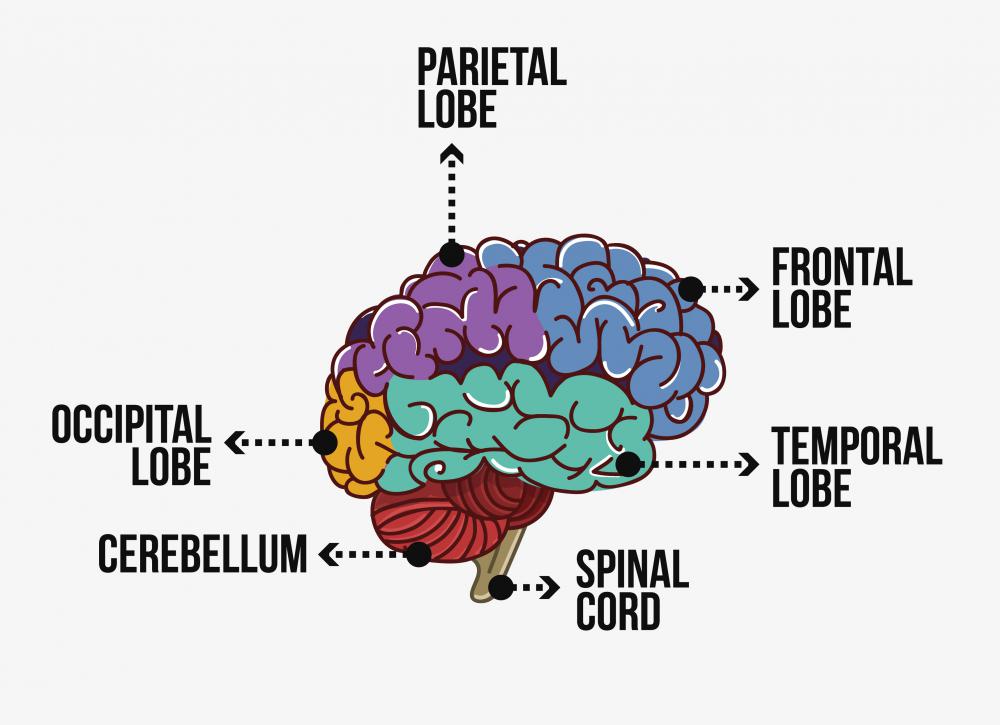At WiseGEEK, we're committed to delivering accurate, trustworthy information. Our expert-authored content is rigorously fact-checked and sourced from credible authorities. Discover how we uphold the highest standards in providing you with reliable knowledge.
What are the Lobes of the Brain?
The brain is made up of four primary parts that are known as lobes. The divisions are made primarily based on the structure of the brain, though many brain functions are also localized to specific areas. The brain is divided based on the patterns of grooves and bumps on the cerebral cortex. The four primary lobes of the brain are the frontal, parietal, occipital, and temporal lobes. The cerebellum, another structure of the brain, is commonly grouped with the lobes but is not actually considered to be one of them.
The frontal lobe is at the front of the brain directly behind the forehead and is primarily responsible for reasoning, decision making, and some aspects of long-term memory. It is also very important for moderating and controlling motor function by synthesizing information coming from other parts of the brain. This lobe is the most sensitive to dopamine, an important neurotransmitter involved in processes ranging from attention to motivation. Damage to the region can cause a wide range of problems, such as altered speech patterns, slower thought processes, increased distraction, loss of smell and taste, and increased risk-taking.

The parietal lobe is located behind the frontal lobe, below the top of the back of the head. It is mostly involved with processing sensory information from throughout the body, and it is also involved in spatial sense. Damage to the parietal lobe can cause a variety of symptoms, including a loss of ability to read long passages, a lack of understanding of some common symbols, and difficulty comprehending spatial relationships.

Below the parietal lobe is the temporal lobe, which is strongly associated with auditory perception and memory. Damage to the parietal lobe, then, can cause problems in speech processing or memory problems, such as anterograde amnesia. An important brain structure known as the hippocampus, which plays an important role in memory and in spatial processing, is located in this lobe.

The rearmost of the lobes of the brain is the occipital lobe, which is primarily responsible for vision and for visual processing. It is the smallest brain lobe. Damage to the occipital lobe can cause partial or complete vision loss, as the primary visual cortex is located in this lobe.
AS FEATURED ON:
AS FEATURED ON:















Discuss this Article
Post your comments